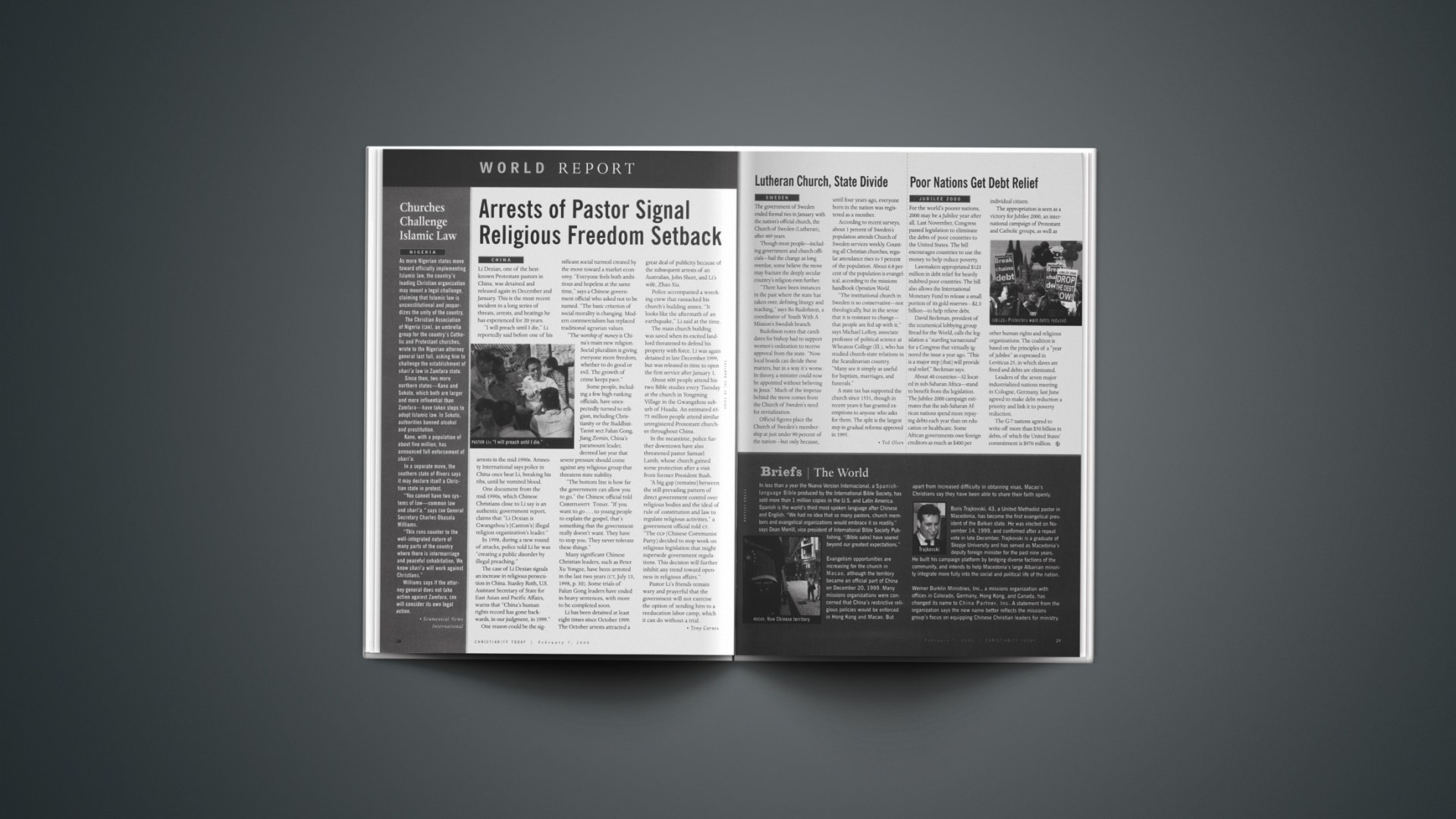The government of Sweden ended formal ties in January with the nation’s official church, the Church of Sweden (Lutheran), after 469 years.Though most people—including government and church officials—hail the change as long overdue, some believe the move may fracture the deeply secular country’s religion even further.
“There have been instances in the past where the state has taken over, defining liturgy and teaching,” says Bo Rudofsson, a coordinator of Youth With A Mission’s Swedish branch.Rudofsson notes that candidates for bishop had to support women’s ordination to receive approval from the state. “Now local boards can decide these matters, but in a way it’s worse. In theory, a minister could now be appointed without believing in Jesus.” Much of the impetus behind the move comes from the Church of Sweden’s need for revitalization.
Official figures place the Church of Sweden’s membership at just under 90 percent of the nation—but only because, until four years ago, everyone born in the nation was registered as a member.
According to recent surveys, about 1 percent of Sweden’s population attends Church of Sweden services weekly. Counting all Christian churches, regular attendance rises to 5 percent of the population. About 6.8 percent of the population is evangelical, according to the missions handbook Operation World.
“The institutional church in Sweden is so conservative—not theologically, but in the sense that it is resistant to change—that people are fed up with it,” says Michael LeRoy, associate professor of political science at Wheaton College (Ill.), who has studied church-state relations in the Scandinavian country. “Many see it simply as useful for baptism, marriages, and funerals.”
A state tax has supported the church since 1531, though in recent years it has granted exemptions to anyone who asks for them. The split is the largest step in gradual reforms approved in 1995.
Copyright © 2000 Christianity Today. Click for reprint information.










